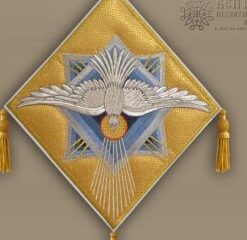Archimandrite Iakovos Kanakis
Knowledge is power and love is the aim; when they go hand in hand we have a wonderful result. ‘Knowledge puffs up whereas love builds up’ (1 Cor. 8, 1) and Saint Maximos the Confessor urges us to: ‘yoke together knowledge and love and you’ll become humble in outlook, a spiritual constructor, building up both yourself and all those you are in touch with’ (ΕΠΕ 14, Thessaloniki 2006). The holy Father analyzes the issue with great clarity: ‘Love builds up because it isn’t envious, it doesn’t embitter those who do display envy, nor does it deliberately make a public show of the person being envied. People who love don’t think they’ve arrived at perfect knowledge (Phil. 3, 12) and they acknowledge what they don’t know, without being ashamed to do so. So they make their mind humble in outlook and prepare it to prosper in knowledge’.
He adds: ‘It’s natural, as it were, for arrogance and envy to accompany knowledge, especially at the beginning of knowledge. Arrogance arises only internally, but envy is both internal and external. Internally, envy is directed towards those who have knowledge; externally, from those who have knowledge’.
How does love help with this? He notes: ‘love overturns the three things mentioned. Because people love, they aren’t proud, so there’s no question of arrogance. There’s no inner envy, because abundant love isn’t jealous. Nor is there any external envy, because the heart that loves shows patience and goodness to everyone (1 Cor. 13, 4). So it’s only with the acquisition of love that existing knowledge is prevented from becoming demonic’.
The signs of the gift of knowledge without love are all too obvious. People sadden others and nurture hatred and wickedness towards others, as if they were ‘plucking their eyes out with thorns and caltrops’ with their own hands.
The obvious question to be posed now is how knowledge can be combined with love. Let’s look at the path handed down to us by Saint Maximos: ‘If Christ dwells within our hearts through faith, as the apostle says (Eph. 3, 17) and all the treasures of wisdom and knowledge are hidden in him (Col. 2, 3), then all the treasures of wisdom and knowledge are hidden in our heart, and are manifested in our heart in proportion to the extent that each one of us is cleansed through the observation of the commandments’. Christ himself stated clearly: ‘blessed are the pure in heart for they shall see God’ (Matth. 5, 8).
In conclusion, the acquisition of knowledge requires effort; the acquisition of love requires blood. Knowledge really is power for people, but without love it’s not only superfluous and vapid, but it can also become dangerous and destructive.
Source: pemptousia.com




0 Comments